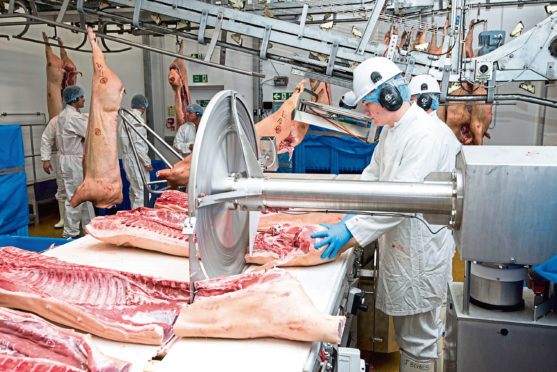Scotland’s meat wholesalers say they will not tolerate any increase in the cost of policing their sector.
Instead they have called for other processors and manufacturers to share the financial burden of regulating the food industry.
Andy McGowan, the newly-appointed president of the Scottish Association of Meat Wholesalers (SAMW), told the organisation’s annual conference in Glasgow members are already paying a disproportionate amount towards regulation compared to competitors.
As an example he quoted a report by the University of Leicester which established that bagged salad is the second most common source of food-borne illness.
“As recently as 2016 over 160 people fell ill in the UK from eating mixed salad leaves, with tragically two of those people affected actually dying as a result. Yet the salad industry pays nothing whatsoever towards the delivery of its regulatory controls,” he said.
“Incredibly it seems that both government and Food Standards Scotland (FSS) believe that this particular part of the food supply chain does not need to pay for official controls which are supposed to be in place to protect the consumer.”
Mr McGowan claimed direct competitors of his industry, such as non-meat food producers, paid “absolutely nothing” for regulatory enforcement.
He added: “The regulatory costs picked up by fish processors aren’t much better, representing about a 20th of the cost per kilo of the regulation charge that is applied to the meat industry.”
Turning to the difficulties of recruiting and retaining quality staff to deliver official controls in red meat plants, currently the subject of a review by FSS, Mr McGowan said he had been advised that overheads are set to rise as it will cost more to hire vets in the immediate future.
“The Scottish red meat sector is simply not in a position to absorb any extra costs, even if they were justified – which they are not,” he said.
“Under the current cost recovery model, which is barely a year old, we already pay over £40 per hour for a vet and £30-plus for a meat inspector,” added Mr McGowan.
“That equates to an annual salary of £84k and £62k respectively, yet it appears the individual vets are scarcely receiving an annual salary of £25k.
“So, from the outside looking in, it does not appear to us that there should be any problem in recruiting staff of the right calibre.”
